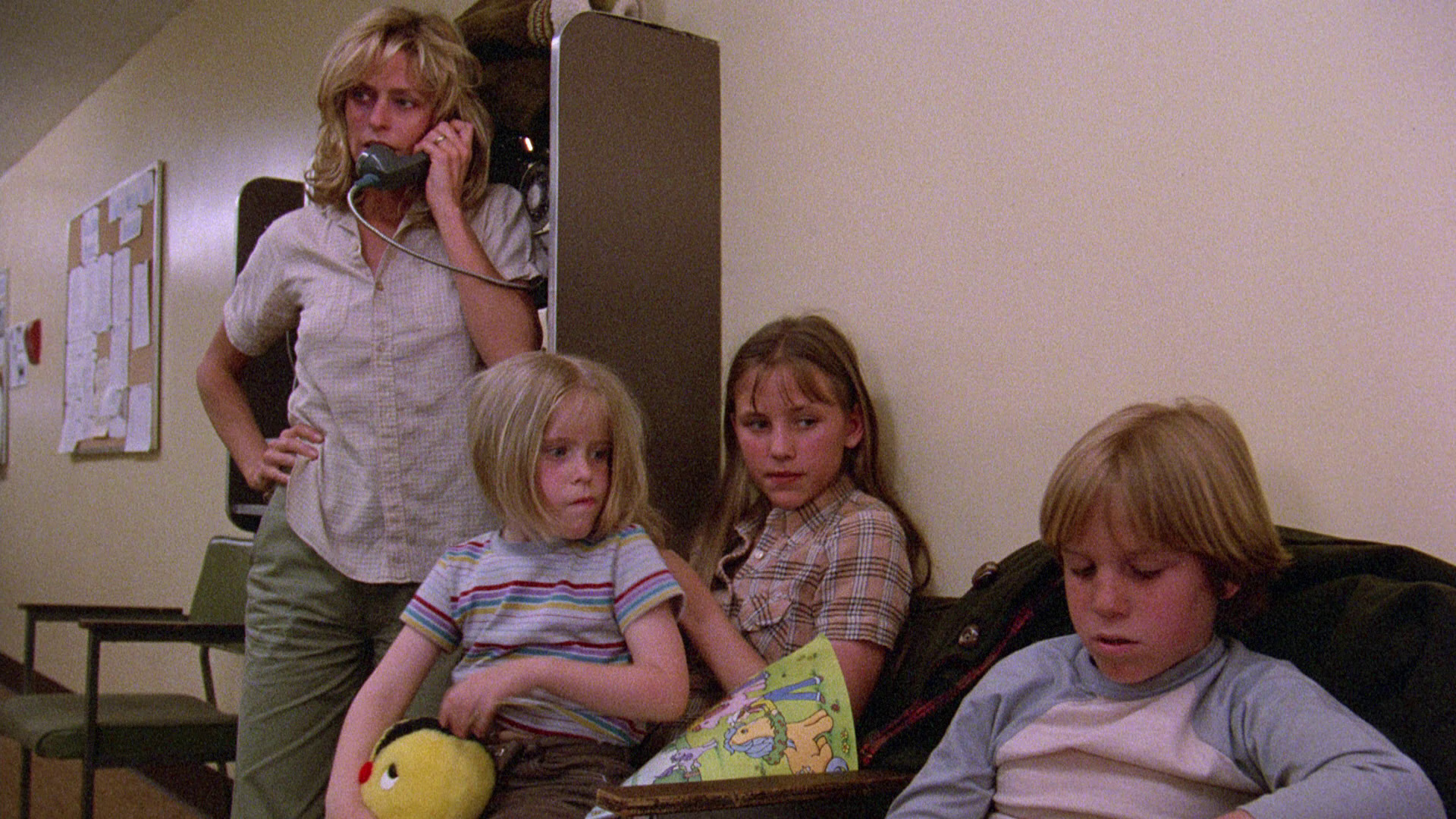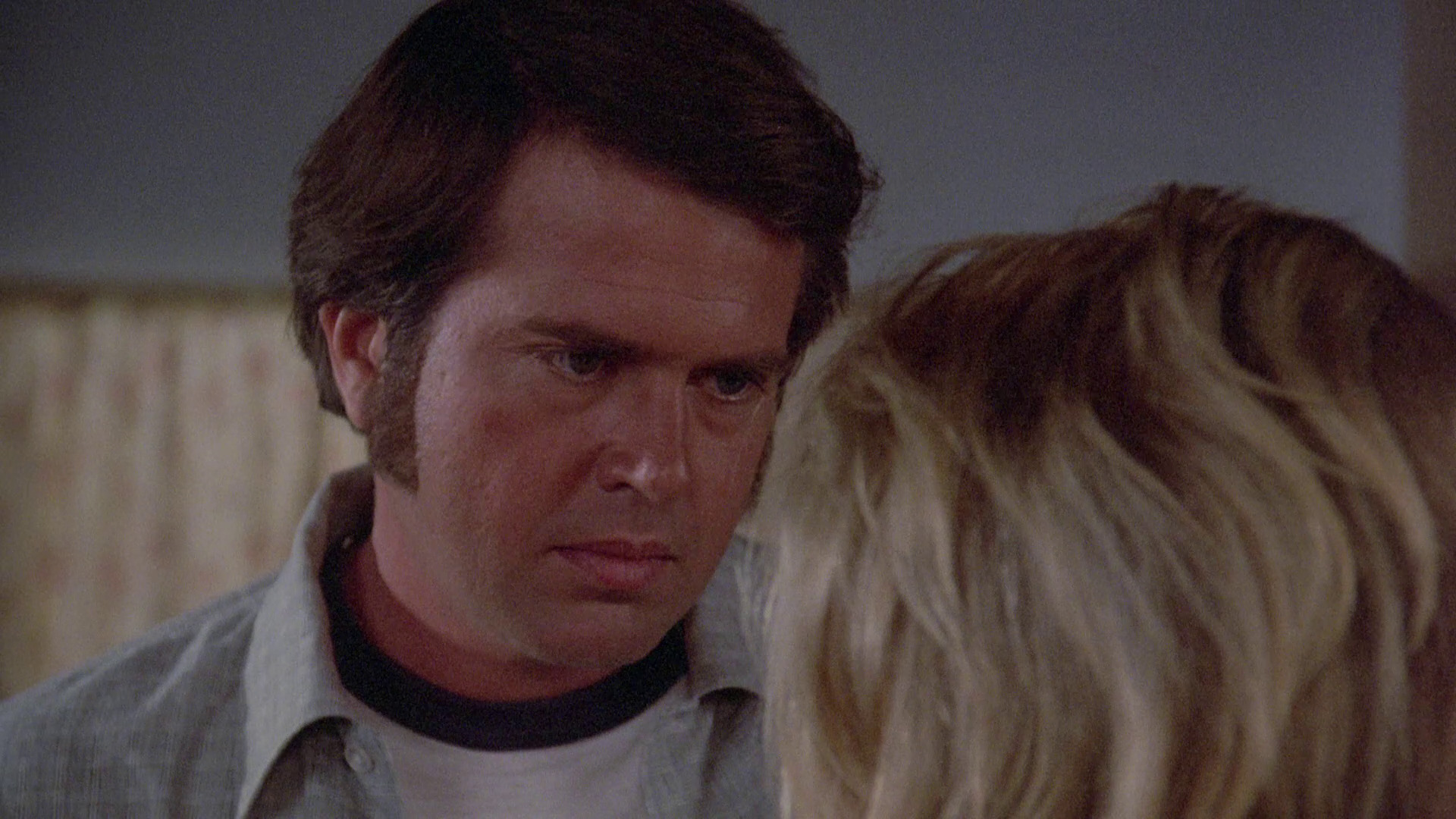‘The Burning Bed’ is a crime drama film that centers around Francine Hughes, a single mother of three who is taking care of her ex-husband, Mickey Hughes, after he is left severely injured in a car accident. Though she is reluctant as he was physically and mentally abusive towards her in their marriage, there is nobody else to do it instead. But as Mickey starts to regain his strength again, the abuse also picks up traction, with Mickey trying to get Francine to stop taking classes at community college by force. But when Mickey pushes her past her breaking point one night, Francine pours gasoline all over him while he sleeps and sets him on fire, and then turns herself into the police’s custody the very same day.
In the 1984 Robert Greenwald directorial, Farrah Fawcett, Paul Le Mat, Richard Masur, Grace Zabriskie, and Penelope Milford play out the harrowing tale of Francine. Domestic abuse is a serious issue that is quite common in most parts of the world, with no concrete laws around it since the majority of people view it as a household’s personal matter to resolve. While a legal recourse to combat domestic abuse is the right way to go about it, there have been several cases where the abused has ended up taking the life of their abuser. Therefore, some of you might be wondering whether or not ‘The Burning Bed’ is one such case.
The Burning Bed: Adaptation of Francine Hughes’ True Story
Yes, ‘The Burning Bed’ is a true story. The screenplay, written by Rose Leiman Goldemberg, was adapted from the eponymous 1980 non-fiction book by Faith McNulty, which chronicles the circumstances surrounding the real-life Francine Hughes. The film is a direct adaptation with little to no deviance, and narrates Francine’s abuse, the murder of her husband by her own hands, and the subsequent trial. Francine Hughes married Mickey Hughes when she was just 16. Soon afterward, Mickey started beating his wife on a regular basis.

Francine, battered and bruised, finally divorced him in 1971, but Mickey moved back in with her again after his car accident. Unable to get away from her ex-husband, Francine enrolled in a secretarial course at a community college in 1976 in a bid to become independent, but this enraged Mickey even further. On March 9, 1977, Francine returned home from her classes to find Mickey drunk. He proceeded to physically assault her and stopped her from making food for her four children.
As per reports, Francine even called the police, and after the officers had left and Mickey had fallen asleep, she told her children to wait in the car as she proceeded to pour gasoline all over a passed-out Mickey and set him ablaze. However, Francine was found not guilty owing to temporary insanity and her own sympathetic circumstances. All of this has been covered in both the book and the film adaptation with fair accuracy.
Francine’s plight is brought to life by Farah Fawcett on-screen, who prepared for the role by speaking with the real-life Francine Hughes. The actress revealed in an interview that she had difficulty in letting go of the mental state of a domestic abuse victim for nearly four months after ‘The Burning Bed’ had finished filming. But it’s not just her who had a hard time of it – actor Paul Le Mat, who depicts Mickey Hughes on-screen, also referred to his time filming as a traumatic experience. “I don’t want to play another one [a wife beater]. It was too traumatic for me, [but] maybe after a while.”
He added, “But I didn’t really hesitate. I was interested in the subject and as soon as I read the script I realized that it doesn’t focus only on the violence. It also shows the relationship and the happier moments,” said the actor. Adding to it, actor Richard Masur spoke about the problem of domestic abuse in the country and why it continues to persist, despite being so widely vilified in public spaces. “It’s a two-edged problem here because a lot of people in this country don’t think there is a problem, number one, and number two, other people in this country believe that it’s an acceptable way to behave,” he said.
Richard Masur added, “They believe that in a very archaic way that a man’s home is his castle and he has the right to do whatever he wants to in it. That means if he wants to beat his wife up, he can do it as long as he doesn’t take it out onto the street, and if he wants to beat his children and sexually abuse them, he can do that. And we know better than that.”

It is precisely the aforementioned mentality that ‘The Burning Bed’ aims to shine the light on by retelling the true story of Josephine Hughes for everybody. Though the realistic scenes of abuse might be unsettling to watch for some, it is not a subject that one can simply avert their eyes from. Because if even one person chooses to look away, it might end up costing another their life.
Read More: Best Films About Women’s Revenge


You must be logged in to post a comment.